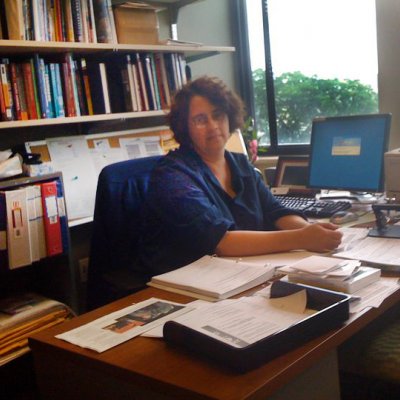Neusa McWilliams

1986 BA Biology, Mexico Autonomous National University
1989 BA Bachelor of Art Archaeology (Paleoethnobiology), National School of Anthropology and History
1991 MA Geography, University of California at Berkeley
1996 PhD Geography, University of California at Berkeley
About
Neusa McWilliams’ research has focused on economic development, including sustainability, especially in the rural areas of Latin America. She is particularly interested in the networks that isolated communities were able to create within their societies to survive, despite years of government policies aimed to integrate such regions into the national economy. Most recently, her research has focused on remittances, especially the policies that the governments of Mexico and El Salvador have implemented to attract money from remittances and funnel it toward community development projects (e.g., 3x1 program in Mexico). Neusa aims to follow up on these projects and their economic, social, and cultural impacts in these rural communities. She is especially interested in women’s role in these projects’ implementation and coordination.
Another research interest of Neusa is neighborhood asset mapping in community revitalization and planning projects. By mapping asset information provided directly by local residents or by a community-building approach, residents feel empowered in defining the community’s desired outcomes and in creating and implementing solutions. As such, she recommends that these maps be incorporated into any government-funded redevelopment project.
More recently, Neusa has been conducting research among immigrant women populations and how their past involvement in nongovernmental organizations in their home country have encourage them to participate in NGOs in the U.S., and how this participation, in turn, influences their original membership in their countries of origin. By interviewing a few members of cooperatives in California and in New York City, she has found a correlation between their previous involvement in cooperatives (for textile, ceramic, and coffee) in Latin America and their involvement in similar organizations in the U.S. Her current research interest focuses on the opportunities offered by local cooperatives to immigrant women as sources of social and economic empowerment. She has found that as these women become empowered, they become active agents of social change and provide funding to promote economic changes to their native countries.
Neusa’s doctoral dissertation combined a social network approach with a focus on indigenous communities’ grower-based, certified organic coffee organizations and the world markets. The study analyzed the social and environmental impacts and future tendencies of organic agriculture and sustainable rural development in Latin America.
Research Interests
- Sustainable development in Latin America
- Challenges created by globalization, migration, environmental degradation, and climate change
Courses Taught
- A GOG 102: Introduction to Human Geography
- A GOG 220: Introductory Urban Geography
- A GOG 250/A GLO 363: Geography of Latin America/Latin America and the Caribbean


